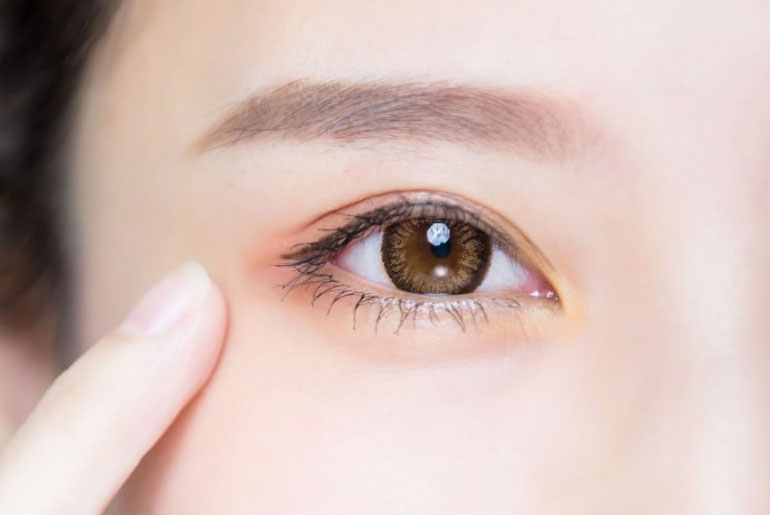Maintaining eye health is greatly supported by a diet rich in nutrient-dense foods like carrots, broccoli, and salmon, but sticking to a balanced diet consistently can be challenging. To fill in any nutritional gaps and bolster vision, consider integrating specific vitamins and supplements into your routine. Essential nutrients for eye health include Vitamin A for maintaining vision, Vitamin C and Vitamin E for antioxidant protection, lutein and zeaxanthin for filtering harmful light, omega-3 fatty acids for overall retinal health, and zinc for supporting night vision and retinal function.
It’s important to consult with a healthcare provider before introducing new supplements to ensure they align with your individual health needs. Additionally, protect your eyes by choosing the right color sunglasses, adopting habits that preserve vision, and being aware of common age-related eye conditions that you might encounter as you age.
Best Vitamins and Supplements for Eye Health
Maintaining good eye health is crucial for overall well-being, and while a balanced diet plays a significant role, certain vitamins and supplements can further support your vision. Here’s a detailed look at the top vitamins and supplements beneficial for eye health, along with their sources and recommended dosages.
1. Vitamin A
Vitamin A is essential for good vision and overall eye health. It helps in the production of pigments in the retina, allowing you to see a full spectrum of light. Vitamin A also prevents dryness of the eyes. Carrots, known for their high beta-carotene content (a precursor to vitamin A), are particularly beneficial. Other sources of vitamin A include salmon, broccoli, fortified breakfast cereals, and eggs. For supplementation, it’s often available in capsule form and can be obtained for under $10.
- Foods with Vitamin A:
Salmon
Broccoli
Fortified breakfast cereals
Eggs
Carrots
2. Vitamin C
Vitamin C acts as an antioxidant, protecting your eyes from harmful UV damage and reducing the risk of cataracts. It’s crucial for collagen formation, which supports the structure of the eye. While more research is needed to establish a direct link between vitamin C and reduced cataract risk, it’s recommended to use vitamin C supplements if you’re deficient. Vitamin C can be found in kale, broccoli, Brussels sprouts, oranges, lemons, and strawberries.
- Foods with Vitamin C:
Kale
Broccoli
Brussels sprouts
Oranges
Lemons
Strawberries
3. Omega-3 Fatty Acids
Omega-3 fatty acids, found in fatty fish like tuna, salmon, mackerel, and herring, are beneficial for eye health due to their anti-inflammatory properties. They help in slowing the progression of age-related macular degeneration (AMD) and can prevent dry eye disease. Nuts and seeds such as chia seeds, flaxseed, and walnuts are also good sources of omega-3s.
- Foods with Omega-3s:
Tuna
Salmon
Mackerel
Herring
Chia seeds
Flaxseed
Walnuts
4. Vitamin E
Vitamin E is a powerful antioxidant that helps protect cells from damage caused by free radicals. It plays a vital role in protecting the retina and slowing the progression of AMD. For adults, 400 IU of vitamin E daily is often recommended. You can find vitamin E in sunflower seeds, almonds, peanuts, collard greens, red bell peppers, mangoes, and avocados.
- Foods with Vitamin E:
Sunflower seeds
Almonds
Peanuts
Collard greens
Red bell peppers
Mangoes
Avocados
5. Zinc
Zinc is essential for maintaining the health of the retina and may help in preventing AMD. It also aids in the production of melanin, which protects the eyes from damage. The recommended daily intake ranges from 40 to 80 mg. Sources of zinc include meat, shellfish, chickpeas, lentils, pumpkin seeds, cashews, almonds, eggs, cheese, and milk.
- Foods with Zinc:
Meat
Shellfish
Chickpeas
Lentils
Pumpkin seeds
Cashews
Almonds
Eggs
Cheese
Milk
6. Lutein and Zeaxanthin
Lutein and zeaxanthin are carotenoids found in vibrant fruits and vegetables. These compounds are known for their antioxidant properties and play a crucial role in protecting the retina from damage caused by free radicals. They also help in slowing the progression of AMD. The American Optometric Association recommends a daily intake of 10 mg of lutein and 2 mg of zeaxanthin. These carotenoids can be found in foods like kale, spinach, peas, broccoli, orange juice, red peppers, honeydew melons, and grapes. Supplements are available but can be more expensive, so increasing your intake of these foods may be a cost-effective option.
- Foods with Lutein and Zeaxanthin:
Kale
Spinach
Peas
Broccoli
Orange juice
Red peppers
Honeydew melons
Grapes
Incorporating these vitamins and supplements into your diet can significantly benefit eye health. Vitamin A supports vision and prevents dryness, Vitamin C protects against UV damage, omega-3s help with AMD and dry eye disease, Vitamin E safeguards retina cells, zinc boosts eye health and prevents AMD, and lutein and zeaxanthin protect the retina and slow AMD progression. A diet rich in these nutrients or targeted supplements can enhance overall eye health and potentially prevent or slow the progression of eye diseases. Always consult with a healthcare provider before starting any new supplement regimen.
Disclaimer:
The information contained in this article is for educational and informational purposes only and is not intended as a health advice. We would ask you to consult a qualified professional or medical expert to gain additional knowledge before you choose to consume any product or perform any exercise.







